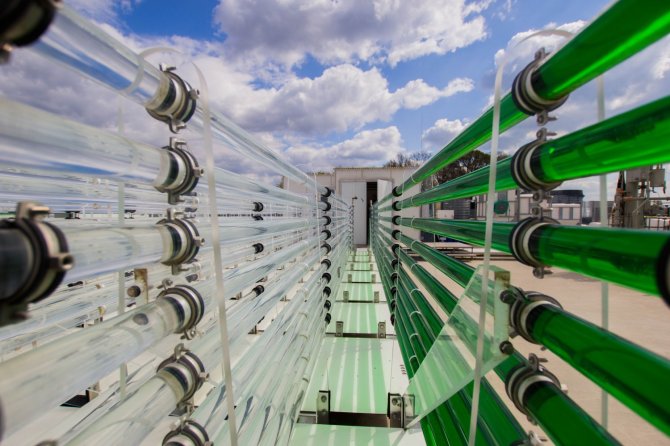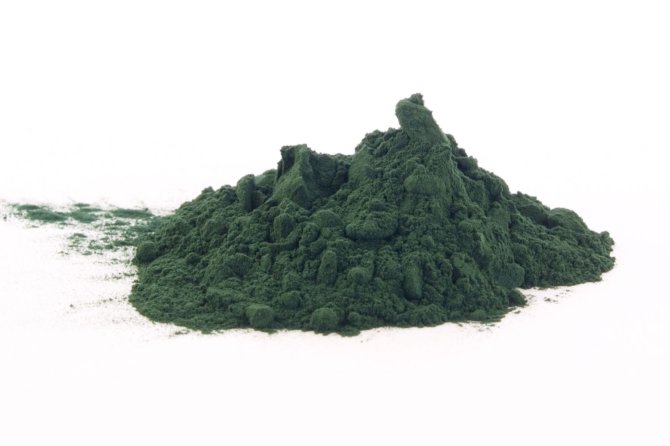
Interview
Are algae the food of the future?
Through a complex network of pipes in Wageningen flow billions of algae: the green gold. The European Commission wants to stimulate the cultivation of algae. These microscopic creatures are richly filled with fats and proteins and are therefore a useful addition to our diet. Especially if we have 10 billion mouths to feed in thirty years' time. Are algae the food of the future?
Maria Barbosa, professor of Bioprocess Engineering, studies algae and how best to grow them. In the scientific journal Trends in Biotechnology Barbosa and her colleagues describe the developments, opportunities and challenges of algae cultivation as well as the current state of the microalgal field. “We have seen a lot of movement in the last years.”
We have been hearing about world-changing algae for quite some time, but we still do not see the result. What is the hold up?
“People probably have not noticed, but you can already buy burgers made with algae at the supermarket in the Netherlands and some bakers use algae to bake salt-free bread. In addition, algae are a source of natural food colouring. Blue smarties, for example, get their colour from a chemical in algae. So, we are already using them.”
That is all on small scale. How can that be the food of the future?
“We have seen a considerable shift in two areas over the past five years. First, the field of algae cultivation is maturing: technology is making significant leaps forward, and we are learning more and more about how to manipulate algae, for example by making adjustments to the DNA. Secondly, the society is becoming increasingly aware of the consequences of our behaviour in relation to the environment. Consumers and industry are therefore consciously making more sustainable choices. Food made with algae is therefore more appealing.”

Does the stimulation of the European Commission to grow more algae help as well?
“Currently, we only grow 75,000 tons of algae per year worldwide. If we want to use algae in our food on a large scale, that amount needs to be increased considerably. The European Commission now subsidises large algae farms, making it possible to grow more algae. So the ruling of the European Commission will definitely help us to move to a larger scale.”
Yet, algae soup or an algae burger does not sound very appealing. How do you make it tasty?
“Indeed, I suspect algae are not delicious on their own, but it is not the goal to make food purely from algae. Once they have grown sufficiently in an algae farm, algae are harvested and dried into a powder. Without all that water, it is a lot easier and cheaper to transport. The dried algae serve as a food supplement in small portions. If you would add too much, it affects taste and colour.”

That sounds like a lot of work. Why not just stick to the vegetables that we know, like soy, peas, and lentils?
“Scaling up algae cultivation does not mean we should stop growing or eating plant-based proteins. If we want to feed the world, we should use a range of solutions. An advantage of algae is that they take up limited space. They grow in a closed system, such as tubes, which we can easily stack on top of each other. Algae also don't grow in the ground like plants, so the algae farms can be situated on infertile soil. Finally, algae need nutrients, just like plants. Due to the closed system, substances such as nitrogen and phosphorus can be regulated and recycled easily, so they do not leak into the soil.”
I expect that food made from algae will be very common in five to ten years.
When can we expect products made with algae in the supermarket on a large scale?
“Now that there is more subsidy, algae cultivation is gaining momentum. More algae cultivation means more product development. Once researchers at universities and small companies design and test products on a larger scale, they will also attract the attention of the industry. Companies are more likely to invest if they are confident the product can be produced in large quantities and has a chance of success on the market. Therefore, I expect that food made from algae will be very common in five to ten years.”
What is next for algae? Do you see more opportunities?
“There are many applications that scientists are already studying today. Algae can for example serve as a production platform for pharmaceutical substances, as edible vaccines, and they are a good source of oil. Part of that oil can serve as a replacement for fish oil, while another part is perfect for biodiesel. However, those applications are currently still challenging and will take longer to realise than algae as food or feed source.”